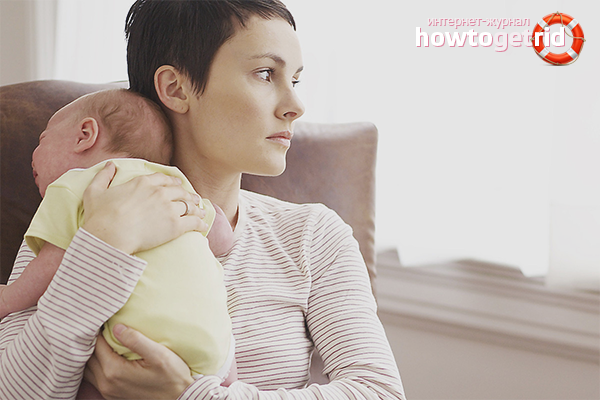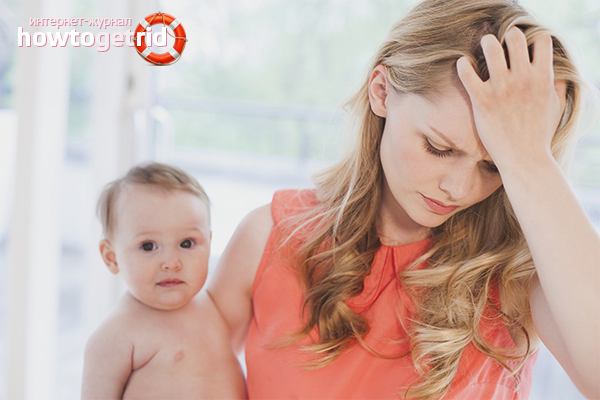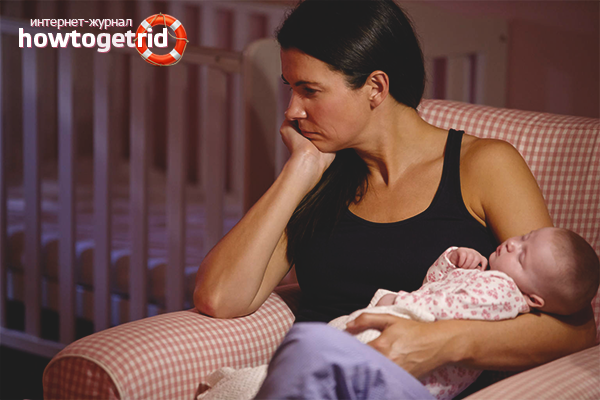The content of the article
Postpartum depression is a difficult period in the life of not only women, but all family members. Constant depression, loss of strength, and apathy often lead to uncontrolled outbreaks of hatred. As a result of this outcome, the baby is left without attention, and the husband does not withstand nervous tension. Such a situation leads to disagreement in the family, the newly-minted mother needs support. Hence the need for the use of psychological techniques, which we will talk about today.
Persons Subject to Postpartum Depression
- girls who throughout the pregnancy were without support;
- young ladies prone to frequent breakdowns;
- women who have had postpartum depression before;
- mothers with many children;
- women during the divorce period;
- girls whose husbands did not want children (unwanted pregnancy);
- single ladies who lost their father during pregnancy;
- women prone to dysphoric premenstrual disorder.
Symptoms of Postpartum Depression
- guilty feelings that do not disappear for a long time;
- suicidal tendencies;
- lack of appetite or, on the contrary, uncontrolled “zhor”;
- exacerbation of diseases (both chronic and acquired);
- causeless flashes of rage, anger at others;
- low self-esteem;
- oppressed state, in particular, gloomy thoughts;
- constant fatigue, poor sleep, apathy;
- constipation
- sharp jumps in mood in the evening and morning;
- An anxiety state that cannot be eliminated
- removal from family and friends;
- anger at husband and baby.
Causes of Postpartum Depression
- In most cases, many girls suffer from postpartum syndrome, which manifests itself in a depressed state. Ladies “wind up” themselves with thoughts that when a child is born, they will be bad mothers. As practice shows, a similar outcome of events is characteristic of girls and women who spent their childhood in an incomplete or dysfunctional family. A constant sense of anxiety and the above symptoms do not alleviate the situation. The newly-made mother does not believe in herself, does not accept the support of her husband, gradually drowning in prolonged depression.
- If the pregnancy proceeds without complications, the couple rejoices in the baby, who will be born soon, the girl feels great. She is in high spirits, is preparing for the appearance of the baby, is looking forward to a happy joint life. Since it is difficult to hide from physiology, a sharp jump in hormones occurs after childbirth. The menstrual cycle begins again, appetite decreases, and insomnia appears. All dreams are slowly fading into the past, the present crushes with a heavy load. As a rule, symptoms begin after the termination of breastfeeding. Girls are dissatisfied with their appearance, and lack of time for themselves creates the basis for a full depression.
- The next cause of postpartum depression is lack of attention. After the appearance of the baby, many girls believe that no one loves them, but this misconception is extremely wrong. Friends and acquaintances visit nightclubs, relax to the fullest, while the newly-made mother does not sleep at night due to the constant crying of the child. The husband, in turn, is delayed at work, because he does not withstand the enormous load. The older generation of relatives is trying to give instructions, driving the woman into hysteria.Against the background of such a development of events, depression sets in, which increases every day.
How to deal with postpartum depression
Put your child first. First of all, you need to correctly prioritize: the baby should be fed, dry, clean. In order for the child to sleep soundly, bathe him in the evening, change the diaper on time, and feed him healthy food. After completing basic duties, also go to rest. Cut to sleep any convenient minute to replenish the supply of energy. You will feel much better after sleep.
Do not refuse help. Do not make yourself a mother heroine who does everything herself. Transfer some of the household chores to your parents, spouse, or close friends. Do not refuse help, learn to accept it. You can be provided with the service of preparing food or paying for an apartment, shopping at the store, cleaning, etc. for the period while you are with the baby. No need to feel awkward asking relatives to pay bills or buy food.
Even if before the birth you coped perfectly with the duties yourself, now the situation has changed. Lack of sleep and loss of strength will unsettle anyone, your poor health will affect the condition of the whole family. Wait a certain period until you come back to the previous combat readiness. Sit back and think about who you can ask for help. You cannot be a good housewife, mother and wife at the same time, learn to share responsibilities.
Watch out for food. It is very important for a woman in the postpartum period to establish a diet, it must be balanced, fast and healthy. Include fresh fruits and vegetables in your diet, buy food for 5-7 days in advance, purchase household appliances that make your life easier (multicooker, dishwasher, blender, double boiler, etc.).
If possible, cook only fast dishes, which will last for 2-3 days. This can be soup, stewed vegetables, mashed potatoes or pasta with goulash, vegetable salads. Drink whole milk, kefir, fermented baked milk, freshly squeezed juices, green and herbal tea. Do not be like newly moms who forget to eat. Eat often in small portions while the baby is sleeping.
Adjust your day. In order not to be torn into several cases at the same time, start a notebook or write down unresolved questions on the album sheet. Write down the cases in the first and second places, if possible, complete them completely. Do not try to do everything at once, act gradually. It is important to understand that children are unpredictable creatures, for this reason the daily routine should be flexible. Cross out items from the list as you complete. If you do not have time to do everything, reduce your duties based on your health, do not exhaust yourself.
Take care of yourself. To avoid depression, which appears as a result of dissatisfaction with your own appearance, take time for yourself. An unwashed head and unpainted nails will drive anyone into longing, do not allow this. The first 6 months after the birth of the baby are called “marmot everyday life,” the woman is constantly at home, limiting herself to everyday pleasures.
Learn to avoid this condition, devote 1-2 hours a day to take care of yourself. Take a bath with aromatic oils and herbs, do manicures / pedicures, change the hairstyle. Ask your husband to sit with the baby, and sign up for yourself in the gym or dancing, bring the figure in order. You can relax by watching your favorite series or reading an interesting book. The main thing is not to wallow in the abyss of life.
Practical recommendations
- Go in for sports, it perfectly accelerates longing and helps to cope with negative thoughts. Sign up for a pilot lesson in Pilates, stretching, yoga or sports dancing.Start going to the gym or jogging around the house for 15 minutes, tidy up your body.
- No need to exhaust yourself, clutching at several things at once. Solve pressing problems gradually, do not forget about sleep, ask loved ones to sit with the child, if the situation requires it.
- In most cases, girls exaggerate the significance of the problems. Try to speak it out loud, tell your child about your experiences, or chat with your pet if you do not want to put your thoughts on the display of friends and relatives.
- Avoid gloomy thoughts. Light curtains, rainbow paintings and funny music will help you with this. Also, do not close the windows, let the sun's rays penetrate inside the house.
- Regularly resort to small psychological tricks. Choose a comfortable chair, sit in it comfortably, close your eyes and lie down in silence. Focus on your breathing, diaphragm movement, and arm positioning. Enough 10-15 minutes a day to feel alive.
- No need to tear anger, lack of sleep and discontent on her husband. Understand that it’s also hard for him. Provide all kinds of support, communicate more, support him and find comfort in the arms of your beloved.
- Do not try to restrain emotions, splash them out. Cry in the shower, shout into the pillow, turning on loud music. Speak to your best friend or mom, hit the mattress with your palm.
- Immediately after the birth of the baby, abandon the accumulation of relatives and guests in your home. Politely explain to them that now is not the best time. Take in only the closest, understanding people.
- If you feel that you cannot cope with depression on your own, consult a psychologist. Do not be shy about this need, many girls overcome severe nervous stress with the help of specialists.
You can get rid of postpartum depression as soon as possible, if you tune in properly. Set priorities, do not refuse the help of relatives, do not break down on your husband. Organize the day correctly, do not forget to eat, devote more time to yourself and your child.
Video: 5 Ways to Avoid Postpartum Depression












Submit